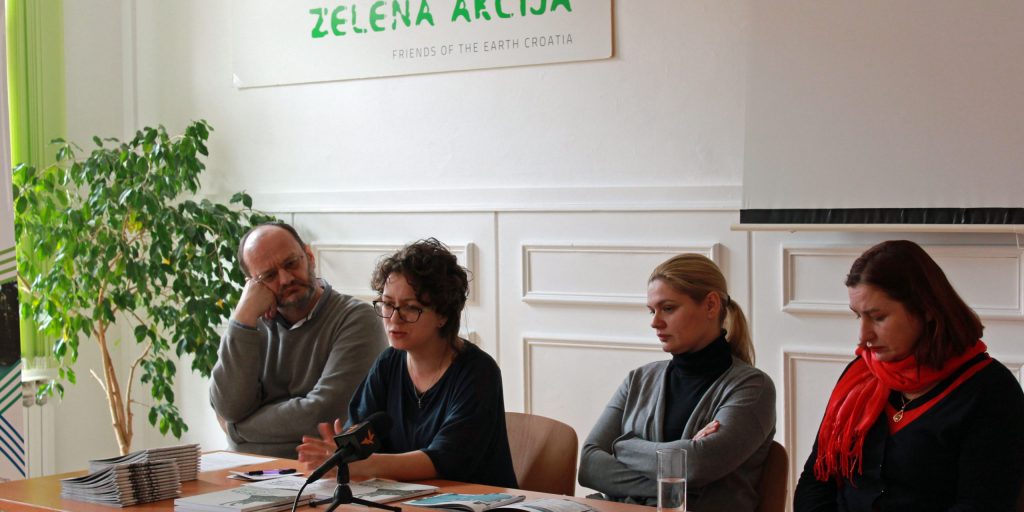After the devastating Balkan floods of 2014, Zelena akcija/Friends of the Earth Croatia and Centar za životnu sredinu/Friends of the Earth Bosnia and Herzegovina has joined with groups across the region to present their strategy on how best to protect and manage rivers in the Western Balkans, and transition the energy sector towards a cleaner future.
Between May 14 and 18 2014, a low-pressure cyclone brought three months’ worth of rain to the region in three days, leading to catastrophic floods and landslides. Bosnia and Herzegovina, Serbia and Croatia suffered the most damage: by the end of the month, at least 62 people had died as a result of the flooding and hundreds more had been forced from their homes.
With such devastating natural disasters difficult to predict, the focus in the region is very much on mitigation – particularly of flooding. Part of the strategy proposed by Zelena akcija and Centar za životnu sredinu involves a serious rethink of the surge in hydropower projects in the region.
“We believe that it was necessary to reflect on the floods in 2014, as well as the growing number of planned projects on rivers, such as hydropower plants. This new plan is intended for the general public as well as decision-makers, and in the case of rivers we have provided specific recommendations for river management in order to reduce flood damage, as well as the processes that should be followed when planning new hydroelectric power plants“, said Nataša Crnkovi? from Centar za životnu sredinu.
At present, there are plans for at least 570 new power stations across the Western Balkans and Turkey – sometimes even in national parks like Sutjeska, in Bosnia and Herzegovina.
Hydropower is not green energy per se: depending on the type, size and location, hydropower plants can have significant impacts on river ecosystems, cause biodiversity loss and have significant social impacts. In Turkey, hundreds of private companies have been given extraordinary power to evict villagers, expropriate private land, clear state forests and steamroller normal planning restrictions to meet the government’s target of 4,000 hydroelectric schemes by 2023.
It is telling that many of these damaging hydroelectric projects were planned decades ago: large infrastructure projects in the region have often tended to be difficult to implement, and now require a rethink.
“At a time when the global energy trends and energy policies suggest the need to reject dirty energy sources such as coal and oil and to replace them with renewables, governments in our region are not responding appropriately.” said Toni Vidan from Zelena akcija. “The time has come for Western Balkan countries to turn to energy efficiency and renewable energy sources, and to take advantage of new technologies to ensure quality development and reduce energy dependency as well as harmful health and environmental effects.”







